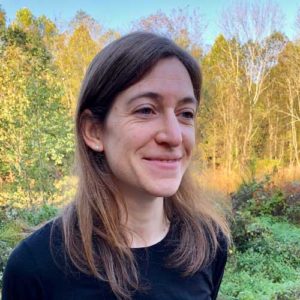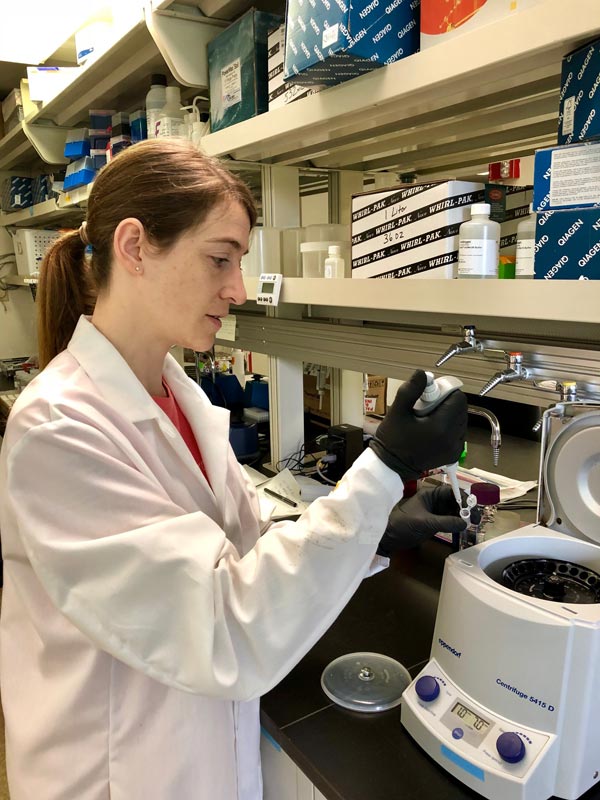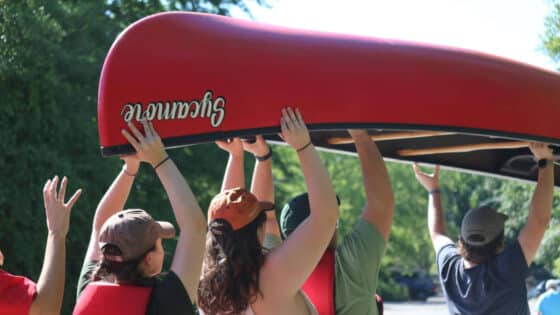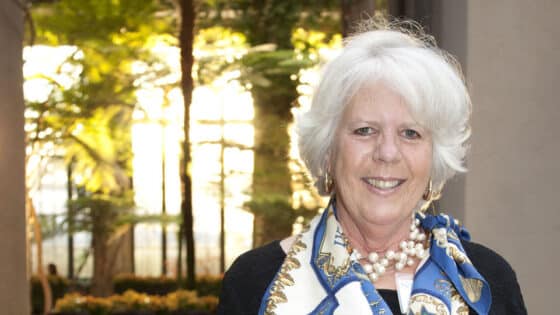
By Diane Huskinson
Raven Bier grew up on a family farm in Sarver, Pennsylvania, about 30 miles north of Pittsburgh, without many modern conveniences: no dishwasher, no microwave, no cable TV, no clothes dryer, no air conditioning. “For environmental reasons,” she explains.
There were, however, plenty of outdoor activities that piqued her interest. Her father especially proved a strong influence in what would become her career in scientific research.
“I grew up helping my father with field work for a nonprofit in conservation biology, and I remember some great days on the Youghiogheny River conducting freshwater mussel surveys. From these experiences, I became really interested in biology.”
For her bachelor’s, Bier attended Carleton College in Minnesota and majored in biology. She then went on to earn her Ph.D. in ecology at Duke University in North Carolina. While there, Bier got a taste of water scarcity. The summer of 2007 began as a drought and by the fall, the city of Durham’s reservoir had less than a month’s supply of water left. “I remember going to a town hall meeting to discuss whether we could bring in enough drinking water via train. That was scary,” she recalls.

By her third job as a research technician, Bier developed an interest in aquatic microbial ecology. “I remember driving through a hot, dusty canyon while doing field work in California and hearing on the radio that there was a concern over drinking-water quality due to folks flushing pharmaceuticals. I started thinking about how could those be degraded in the water and wanted to learn more about microorganisms. I then had the opportunity to work on a project in graduate school looking at stream microbial responses to contaminants released through mountaintop coal mining. At the end of graduate school, I had some puzzling results and realized I needed to better understand how microbial communities developed in an open environment where water chemistry is not the only influence.”
This interest led her to a postdoctoral research fellowship at Uppsala University in Sweden. There she learned about basic research questions and statistics used in microbial community ecology.
In June, Bier joined Stroud Water Research Center as the new postdoctoral associate for a project funded by the William Penn Foundation to improve soil health and water quality in the Delaware River Watershed. “I have been encouraged by how giving people are of their time and expertise, which solidifies that we are all working as a group toward a common goal of understanding and protecting fresh water in a landscape context. I’ve found the Stroud Center to be full of creative and inspiring people: they combine a depth of expertise with the ability to collaborate across broad disciplines. So overall, I’m quite excited to be working on this project among talented researchers and at a facility with this rich history of freshwater research.”
Through her work at the Stroud Center, Bier hopes to better understand how changes in farming practices on land affect the relationship between microbes and the processing of nutrients in streams.
“I think everyone should be able to have enough clean water for drinking but also be able to safely swim in rivers and lakes without worrying about contaminants,” she says, “and farming practices are a big part of that equation.”



